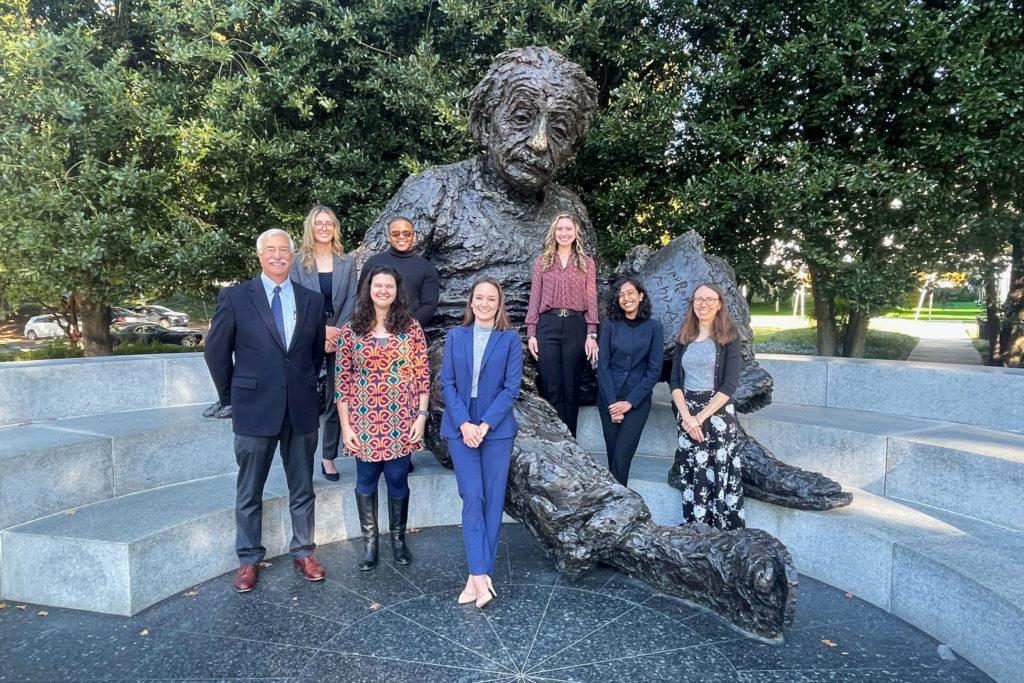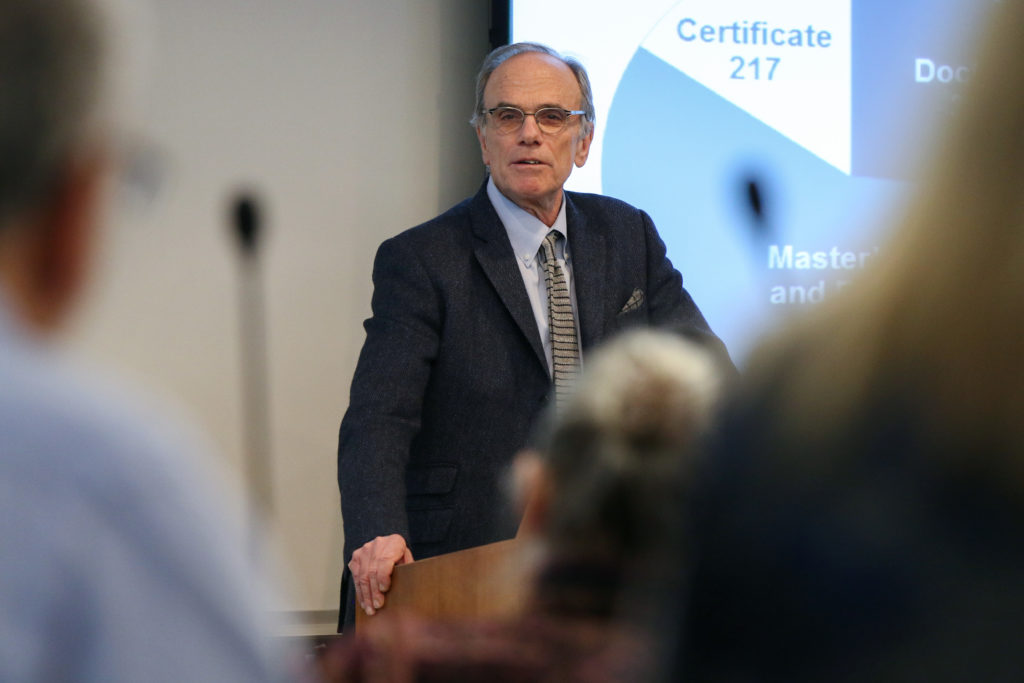Updated: Saturday, Dec. 10, 2022, at 7:24 p.m.
A team of students from across the University won a contest last month that challenged participants to formulate a strategy to prevent intimate partner violence among D.C. adolescents.
The team – which consisted of six dean-selected graduate students from the Milken Institute School of Public Health, GW Law, the School of Nursing and the School of Medicine and Health Sciences – won $3,000 in prize money to be divided between the team after beating out six participating universities in the D.C. area and presented their plan to a panel of expert judges. The team’s solution to youth intimate partner violence implements community and policy-based changes to support survivors with stable housing with a hypothetical $1 million budget over a five-year timeline, according to a tweet from Milken’s Twitter account.
Laura Santacrose, the team’s student leader and a second-year doctoral student studying public health, said the team named their winning strategy “Voices to Interrupt and Prevent Violence.” She said the plan outlines a youth advisory board that would help Advisory Neighborhood Commissions in D.C. identify solutions to local issues and a youth-led educational program named the D.C. Avengers that would teach students about recognizing the signs of intimate partner violence.
“We really wanted to engage youth in creating these resilient communities,” Santacrose said. “We thought that the earlier we could intervene, the better. That was one of the reasons that pointed us to the upstream approach of starting with middle school rather than high school or even college.”
Intimate partner violence is classified as physical violence, sexual violence, stalking and psychological aggression, according to the Centers for Disease Control and Prevention. About 41 percent of women and 26 percent of men have reported experiencing both physical and sexual violence or stalking from their partner in the U.S.
Santacrose said the team’s plan focused in Wards 7 and 8 where more than 21 percent and 23 percent of families live below the poverty line, respectively, compared to the D.C.-wide average of 10.5 percent. Both wards also exceed the overall D.C. average in unemployment and the proportion of population older than 25 without a high school diploma.
She said the team also implemented a two-pronged approach to intimate partner violence involving advocacy for more affordable housing and a website that explains resources like legal support housing, available to people experiencing intimate partner violence. Santacrose said people trying to leave abusive relationships could face housing insecurity and temporary homelessness, which makes it harder to leave those situations.
“Our team tried to propose solutions at multiple levels, while other teams went really deep focused on just the interpersonal level or went really deep trying to create an educational program,” Santacrose said. “I think part of why our team was so successful and why we ultimately won was that we were really trying to look at it through a public health lens.”
Gene Migliaccio, one of the team’s faculty advisors and the associate dean of applied public health at Milken, said the collaboration between several of GW’s schools is part of what made the challenge a success. He said the variety of disciplines allowed participants to create a comprehensive solution to a complex issue, especially when given only two weeks to do so.
Migliaccio said the team is currently working on publishing their work, which they plan to release early next year.
“Everyone touches it from their own vantage point, and that’s how solutions are developed,” Migliaccio said. “We actually work with the deans of medicine, law, public health and nursing to nominate students for the team, so we get the best and the brightest.”
Kayla Authelet, a member of the team and a fourth-year graduate student at SMHS, did background research on successful school intervention programs that influenced the GW team’s final proposal to help formulate the D.C. Avengers plan. She said she studied Expect Respect in Austin, Texas, a program that offers educational theater classes in middle and high schools to promote learning about healthy relationships and preventing bullying.
“They have data that shows that a lot of what they do works,” Authelet said. “That’s why I was attracted to it.”
Prabha Raghavan, a second-year master’s of public health student specializing in global health program design, monitoring and evaluation and a member of the team, said Wendy Ellis, a GW professor and the director of the Center for Community Resilience at Milken, influenced their award-winning solution. Ellis created the “Pair of ACEs” tree model, which the team used to narrow down the aspects of violence to focus on like discrimination, poverty and adverse childhood experiences and intimate partner violence and homelessness.
“It was very nice for us to see that one of the strongest evidences guiding our project came from the work of a GW professor,” Raghavan said.
Jennifer Skillicorn – another faculty adviser for the study, the director of the Office of Applied Public Health and the associate director of the Doctor of Public Health program at Milken – said the issue of intimate partner violence is complex with many different root causes. She said poverty, adverse childhood experiences and trauma can contribute to intimate partner violence and the difficulty the team had addressing them because the roots of the problems are “systemic.”
“Those are challenging things,” Skillicorn said. “They’re so systemic that it can be challenging to address those, especially with a pretty small pot of money that was allocated through this case challenge.”
Skillicorn said the role of faculty adviser is strictly to advise, serving to offer suggestions rather than telling the group exactly which courses of action to take.
“What a pleasure it is to serve as an adviser,” Skillicorn said. “We just find it to be such an important and impactful opportunity for students to engage as a team for a very concentrated and intense period of time in a very focused way to, through the parameters of the competition, understand an issue and then to come up with an approach for it.”
This post has been updated to correct the following:
The Hatchet incorrectly reported that Skillicorn was the director of the Doctor of Public Health program. She is the assistant director. We regret this error.








